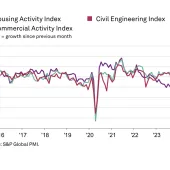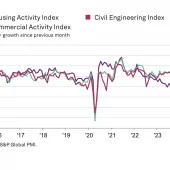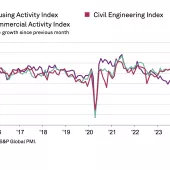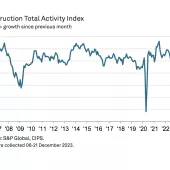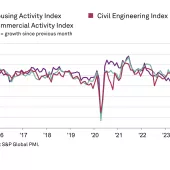Infrastructure to drive UK construction growth
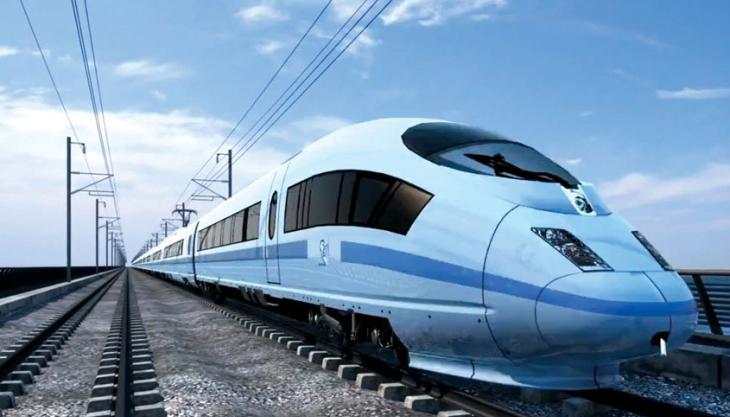
Growth to 2019 expected to be largely driven by 28% increase in infrastructure activity
CONSTRUCTION output is expected to grow by 0.8% in 2017, 0.7% in 2018 and 2.2% in 2019, according to the latest forecast by the Construction Products Association (CPA).
Whilst the forecast shows that the industry will maintain its post-Referendum momentum, it also masks a considerable variation in fortunes across the key construction sectors.
In particular, growth to 2019 is expected to be primarily driven by a 28.0% increase in infrastructure activity and a 6.1% increase in private house building, which would offset expected falls in commercial and industrial construction.
Noble Francis, economics director at the CPA, said: ‘Near-term prospects for construction appear bright with industry growth boosted by several new billion-pound infrastructure projects across the country, such as the Thames Tideway Tunnel, HS2 and Hinkley Point C and the Government’s £23 billion National Productivity Investment Fund.
‘A rise in infrastructure output is expected to ensure positive growth for the construction industry overall, if the Government can ensure it delivers on its announcements.’
House building is also expected to remain a key source of output growth, with private house building starts rising at 2.0% per year between 2017 and 2019.
‘Construction industry prospects should also be boosted by a positive outlook from major house builders, who appear willing to increase supply as they take advantage of rising house prices in an undersupplied market,’ said Mr Francis.
‘The exception to this is the high-profile niche of prime residential in Central London, where there is already an oversupply of properties and sharply falling prices, which we expect to persist over the next 12–18 months.’
Despite the positive forecasts for infrastructure and house building, the CPA warns that substantial risks to construction growth remain, as the fall in the value of Sterling is leading to increased import and raw materials costs.
On the demand side, whilst the uncertainty post-Referendum has not impacted activity on site as yet, it appears to be affecting areas that require high upfront investment for a long-term rate of return, such as commercial offices and industrial factories.
Both have seen new contract awards fall and the CPA believes this is likely to feed through into falls in sector activity from the second half of this year.
Despite these concerns, infrastructure and private housing are anticipated to ensure that the construction industry grows between 2017 and 2019, providing an extra £5.3 billion of economic activity for the construction industry and wider UK economy.


